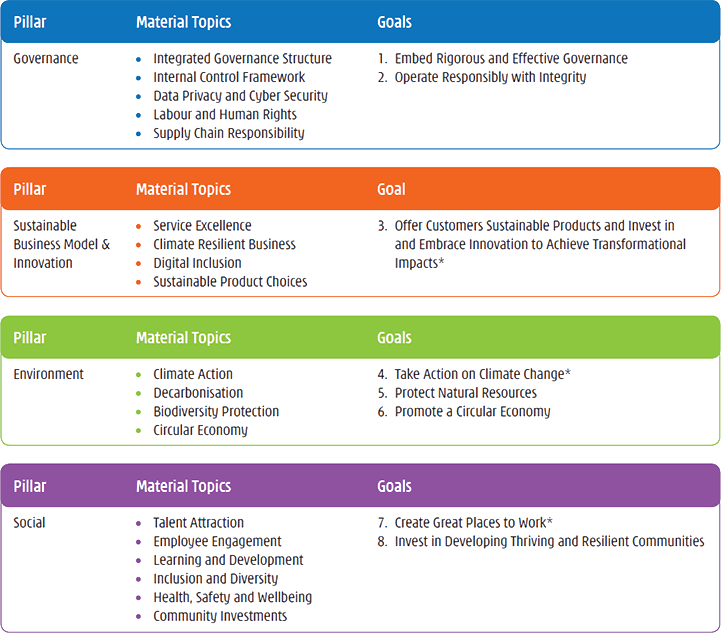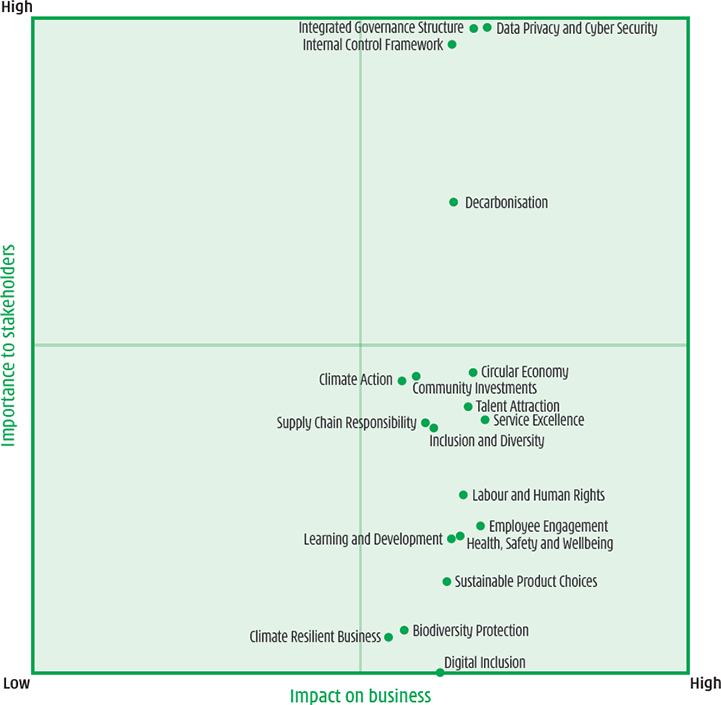Reporting on What Matters
- Approach to Sustainability
- Group Sustainability Framework
- Stakeholder Engagement
- Materiality Assessment
Approach to Sustainability
Sustainability plays a pivotal role in ensuring that the Group maintains its position as a responsible digital service provider and upholds the well-being and prosperity of the communities in which it operates. The Group recognises the importance of understanding stakeholder views and considering stakeholder perspectives in shaping a strategy that places the interests of society and the environment at the forefront. Embracing sustainability is deeply ingrained in the Group’s core values as manifested in its corporate strategies, demonstrating its commitment to responsible business practices and long-term societal and environmental impact.
Group Sustainability Framework
The Group acknowledges the importance of sustainable development and is committed to contributing to the achievements of the UNSDGs and the objectives outlined in the 2015 Paris Agreement through the integration of sustainability management into its governance and management structure. The Group’s governance structure comprises both Board-level and management-level committees and working groups responsible for approving the results of the materiality assessment, implementing sustainability related policies, and monitoring their effectiveness.
To effectively manage its sustainability topics, which have been identified and assessed for materiality through a comprehensive materiality assessment, the Group has established a sustainability framework. The framework is built upon four pillars: Governance, Sustainable Business Model & Innovation, Environment and Social. Each pillar has its own goals, and is supported by the corresponding Group policies, leadership and collective efforts across the entire business.

Stakeholder Engagement
The Group actively fosters open and transparent dialogues with a diverse array of stakeholders, including employees, customers, suppliers and business partners, banks and creditors, shareholders and investors, governments and regulators, as well as local communities and non-governmental organisations. To effectively engage and communicate with that broad range of stakeholders, and gain insights into their views and expectations, the Group has established a wide range of channels for effective communication and stakeholder engagement. The following figure provides an overview of these channels, which serves as valuable avenues for understanding and responding to the needs and concerns of the Group’s stakeholders.
Materiality Assessment
Materiality assessment is an important process to understand the Group’s stakeholders’ expectations on the materiality of different sustainable topics and ensure that the Group’s sustainability commitments and strategies are aligned accordingly. In 2024, the Group conducted its materiality assessment in four stages, including identification, screening, prioritisation and validation. The most material topics for the Group are identified in the top right-hand corner.
The following table summarises the material sustainability issues for the business:

The results facilitate the Group in steering its sustainability strategies, prioritising its sustainability activities, and establishing meaningful metrics for effective performance evaluation.
Key governance and sustainability policies and guidelines of the Group, the Corporate Governance Report and the Sustainability Report are posted on the website of the Company.
(Updated to 14 March 2025)








